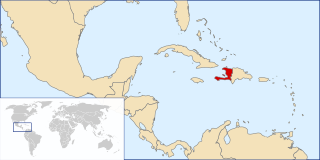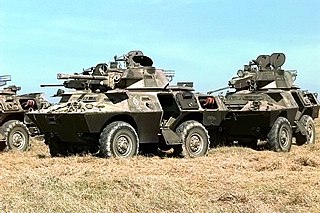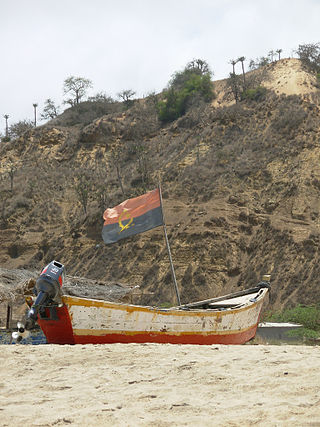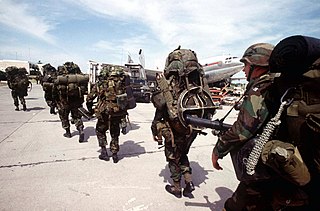
United Nations Security Council resolution 940, adopted on 31 July 1994, after recalling resolutions 841 (1993), 861 (1993), 862 (1993), 867 (1993), 873 (1993), 875 (1993), 905 (1994), 917 (1994) and 933 (1994), the Council permitted a United States-led force to restore President Jean-Bertrand Aristide and authorities of the Government of Haiti, and extended the mandate of the United Nations Mission in Haiti (UNMIH) for an additional six months.
Chapter VII of the United Nations Charter sets out the UN Security Council's powers to maintain peace. It allows the Council to "determine the existence of any threat to the peace, breach of the peace, or act of aggression" and to take military and nonmilitary action to "restore international peace and security".

United Nations Security Council resolution 1173, adopted unanimously on 12 June 1998, after reaffirming Resolution 696 (1991) and all subsequent resolutions on Angola, particularly Resolution 1127 (1997), the council announced its intention to impose further sanctions against UNITA for non-compliance, unless it co-operated to extend state administration throughout the country.
The ISIL (Da'esh) and Al-Qaida Sanctions Committee is a committee of the United Nations Security Council tasked with implementing international sanctions against the Islamic State and al-Qaeda. It was established as the Al-Qaida and Taliban Sanctions Committee on 15 October 1999, pursuant to Security Council Resolution 1267, which designated al-Qaeda and the Taliban as terrorist organizations. Following the creation of a separate Taliban Sanctions Committee on 17 June 2011, it was renamed the Al-Qaida Sanctions Committee. The scope of the sanctions regime was expanded to include the Islamic State on 17 December 2015 pursuant to Resolution 2253.

United Nations Security Council Resolution 841, adopted unanimously on 16 June 1993, after recognising the need for an urgent settlement to the situation in Haiti and the efforts of the Secretary-General of the United Nations Boutros Boutros-Ghali and the Secretary General of the Organization of American States João Clemente Baena Soares, the Council placed various international sanctions on Haiti.

United Nations Security Council resolution 861, adopted unanimously on 27 August 1993, after recalling Resolution 841 (1993) and welcoming an agreement between the President of Haiti and the commander-in-chief of the Armed Forces of Haiti, the council, acting under Chapter VII of the United Nations Charter, suspended international sanctions against Haiti.

United Nations Security Council resolution 864, adopted unanimously on 15 September 1993, after reaffirming resolutions 696 (1991), 747 (1992), 785 (1992), 793 (1992), 804 (1993), 811 (1993), 823 (1993), 834 (1993) and 851 (1993), the Council noted the continuing situation in Angola and went on to condemn and place international sanctions on UNITA.

United Nations Security Council resolution 873, adopted unanimously on 13 October 1993, after recalling resolutions 841 (1993), 861 (1993), 862 (1993) and 867 (1993), the council noted the continued obstruction of the arrival of the United Nations Mission in Haiti (UNMIH) and the failure of the Armed Forces of Haiti to carry out their responsibilities and therefore reimposed international sanctions against Haiti that were previously suspended.

United Nations Security Council resolution 1176, adopted unanimously on 24 June 1998, after reaffirming Resolution 696 (1991) and all subsequent resolutions on Angola, particularly Resolution 1173 (1998), the Council suspended its intention to impose further sanctions against UNITA for non-compliance until 1 July 1998.

United Nations Security Council resolution 917, adopted unanimously on 6 May 1994, after recalling resolutions 841 (1993), 861 (1993), 862 (1993), 867 (1993), 873 (1993) and 875 (1993) and 905 (1994) on the situation in Haiti, the Council imposed further international sanctions on the country after the military authorities refused to implement the Governors Island Agreement to hand over power and instances of violations of human rights.

United Nations Security Council Resolution 944, adopted on 29 September 1994, after recalling resolutions 841 (1993), 861 (1993), 862 (1993), 867 (1993), 873 (1993), 875 (1993), 905 (1994), 917 (1994), 933 (1994) and 940 (1994), the Council affirmed its willingness to suspend sanctions against Haiti once the legitimate President Jean-Bertrand Aristide had returned following the removal of the military junta.

United Nations Security Council resolution 948, adopted on 15 October 1994, after recalling resolutions 841 (1993), 861 (1993), 862 (1993), 867 (1993), 873 (1993), 875 (1993), 905 (1994), 917 (1994), 933 (1994), 940 (1994) and 944 (1994), the Council welcomed the return of the legitimate President of Haiti Jean-Bertrand Aristide and lifted sanctions imposed on the country.

United Nations Security Council resolution 975, adopted on 30 January 1995, after recalling resolutions 841 (1993), 861 (1993), 862 (1993), 867 (1993), 873 (1993), 875 (1993), 905 (1994), 917 (1994), 933 (1994), 940 (1994), 944 (1994), 948 (1994) and 964 (1994), the Council discussed the transfer of responsibility from the Multinational Force (MNF) to the United Nations Mission in Haiti (UNMIH) and extended the mandate of UNMIH for a further six months until 31 July 1995.

United Nations Security Council resolution 1127, adopted unanimously on 28 August 1997, after reaffirming Resolution 696 (1991) and all subsequent resolutions on Angola, the council, acting under Chapter VII of the United Nations Charter, imposed sanctions on UNITA following the lack of compliance in implementing peace agreements after the civil war.

United Nations Security Council resolution 1455, adopted unanimously on 17 January 2003, after recalling resolutions 1267 (1999), 1333 (2000), 1363 (2001), 1373 (2001), 1390 (2001) and 1452 (2002) concerning Al-Qaeda, the Taliban and terrorism, the council improved the implementation of measures against the groups. It was the first Security Council resolution adopted in 2003.

United Nations Security Council Resolution 1607, adopted unanimously on 21 June 2005, after recalling all previous resolutions on the situation in Liberia, the Council extended the embargo on Liberian diamonds for a further six months.

United Nations Security Council Resolution 1782 was unanimously adopted on 29 October 2007.
United Nations Security Council Resolution 1792 was unanimously adopted on 19 December 2007.
United Nations Security Council Resolution 1896 was unanimously adopted on 30 November 2009.

United Nations Security Council Resolution 2025 was unanimously adopted on 14 December 2011.













